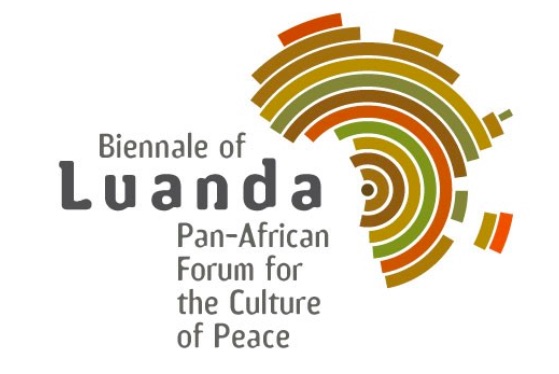FREE FLOW OF INFORMATION
Luanda Biennale: Pan-African Forum for the Culture of Peace
An article from UNESCO
In Africa, the concept of the Culture of Peace is enriched by the values, belief systems, traditions, and cultural and artistic forms of expression that contribute to the respect of human rights, cultural diversity, solidarity and the rejection of violence to build democratic societies. The Biennale for the Culture of Peace draws from Pan-African Forum “Sources and Resources for a Culture of Peace” held in Luanda, Angola, in 2013, and aims to expand and sustain the Pan-African Movement for the Culture of Peace and Non-Violence.

The first edition of the Pan-African Forum for the Culture of Peace, Biennale of Luanda, will be held in the Angolan capital from 18 to 22 September 2019.
This continental initiative is intended to serve as:
A global platform for the promotion of cultural diversity and African unity;
A venue of international and intra-African cultural exchanges;
A special meeting that brings together – every two years – actors and partners of a Pan-African movement for the prevention of violence and conflict, and the consolidation of peace;
An opportunity to build sustainable partnerships between governments, civil society, the private sector, the artistic and scientific community, academic institutions, and international organizations.
(Continued in right column)
(Click here for a French version of this article.)
The Luanda Biennale: What is its contribution to a culture of peace in Africa
Will UNESCO once again play a role in the culture of peace?
(Continued from left column)
The Biennale also aims to give a voice to African women and young people and to facilitate the launch of public awareness campaigns as part of the World Day of Peace (21 September).
The Biennale is organized around four main axes:
Forum of Ideas and Youth Forum: two platforms of reflection on the future of Africa, focusing on the dissemination of good practices and solutions for the prevention of crises, and the resolution and attenuation of conflicts;
Festival of Cultures: promotion of cultural diversity and resilience capacity to conflicts and violence in African countries and the Diaspora;
Cultures and Sports Alliance for Peace: gathering of international cultural, sport and music events for peace advocacy;
Partners’ Alliance for the Culture of Peace in Africa: encouraging the mobilization of resources and partners to support the Biennale and developing on a larger scale projects and initiatives that have proven successful on the African continent.
THE BIENNALE OF LUANDA IN FEW WORDS…
An African encounter for peace:
A platform for promoting cultural diversity and African unity
A place conducive to international and intra-African cultural exchanges
A special meeting that brings together actors and partners of a Pan-African movement for the culture of peace:
Governments;
Civil society;
Artistic and scientific community;
Private sector;
International organizations.
5 days every two years in Luanda, capital of Angola, around four poles:
Forum of ideas / Youth Forum
Festival of cultures
Cultures and Sports Alliance
Partners’ Alliance
Edition 2019: 18 – 22 September (see Provisional Programme)
African cultural Conflict Mediation
By Eddie Habte Mekasha,February 20,2021
The idea of African cultural conflict mediation came to the conflict mediation professionals of St. Louis, Missouri in 2005 during the weekly meetings of various ethnic representatives at the International Institute of St Louis led by Dr. Pamela De Voe, an anthropologist and a certified conflict mediation expert.
Due to this interest, Dr. De Voe and a faculty member in the Washington University in St Louis, School of Law, Negotiation & Dispute Resolution Program provided an intensive two-week mediation training to representatives of local ethnic communities. Soon after, the Cultural Mediation Council St. Louis (EMC) was established. The Conflict Mediation Council serves the various ethnic communities in Metropolitan St. Louis.
The advantage of Cultural conflict mediation is that trained community leaders can use modern conflict mediation techniques within their respective communities without language and cultural barriers. They can also share the positive values of conflict mediation in supporting relationships between different ethnic communities.
Although people have different reasons to come to America, many immigrated because of conflicts caused by race, religion, or political differences. As they adjust to their new home, individuals may experience difficulties leading to conflict, within or between ethnic groups. It is here that trained ethnic conflict mediation members are the most valuable to their own community members and others. These mediators encourage the establishment of a good environment which avoids continued conflicts, thereby fulfilling our common American dream of success.
Dr. De Voe also made a presentation to the Lutheran Family Services staff and the East African Communities in Omaha on the topic of conflict mediation. The training helped many people involved in solving conflicts in their communities and in the workplace.
The msot effective cultural conflict mediation is Afersata of the Gurage ethnic group of Ethiopia whose practce published on African book series by author Sahle Selassie. https://www.amazon.com/Afersata-African-Writers-Sahle-Sellassie/dp/0435900528
ethiopiancommunityomaha.com